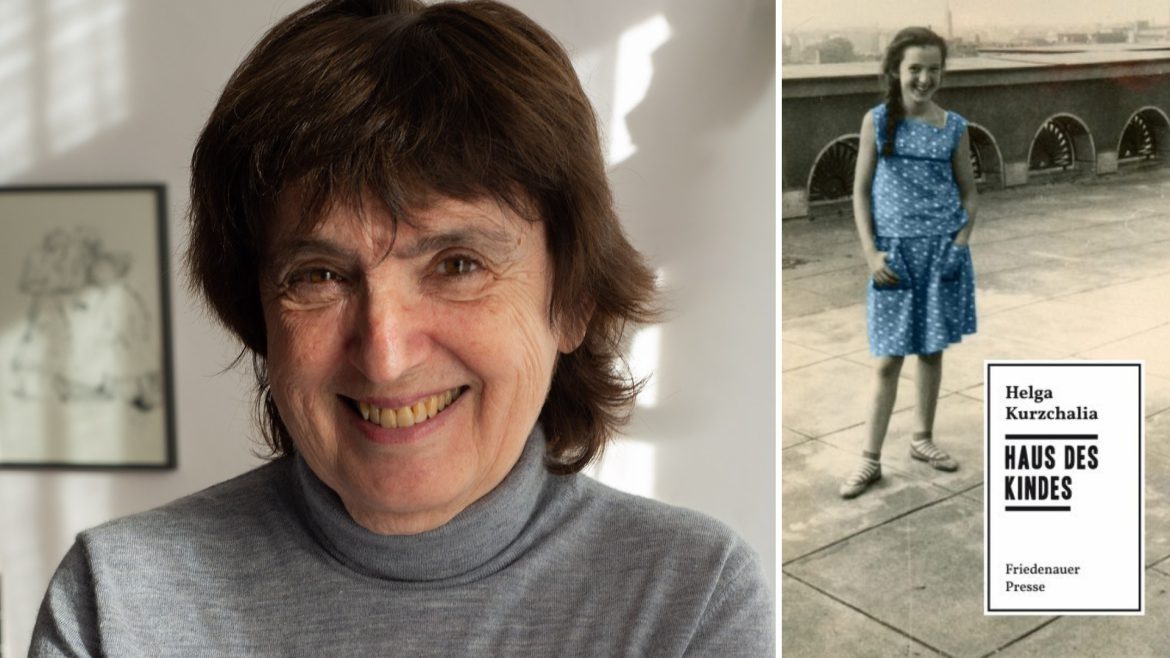[EN] The Haus des Kindes, designed by Hermann Henselmann as a residential and children’s department store, was located at the beginning of the former Stalinallee in East Berlin. Life there is the starting point and crystallization point of an episodically narrated novel that begins before 17 June 1953 and ends in 1965. When the narrator’s communist parents return to Germany from emigration to England after the war, they soon move into the impressive building on today’s Strausberger Platz with their children. Through the girl’s eyes, we meet her neighbors Hermann and Irene Henselmann, Robert and Karin Havemann, and the writers Alex Wedding, F. C. Weiskopf, and Bodo Uhse. They are all united by their belief in a different Germany. But the girl also gets to know people her own age. For example, the boy next door, whose parents were deported to the Soviet Union after the war and whose mother will later flee to the West. Or her school friend Gilda, who grows up in an old apartment block behind Stalinallee as if in another cosmos, and the orphaned Zsuzsa, who was transplanted from Hungary to Berlin after the 1956 uprising and comes to visit the child’s house. After a few years, the first tiles fall off the façade onto the street, and clear cracks also appear between the residents. The protagonist experiences the contradiction between her privileged situation and the outside world, between Stalinallee and its side streets, the reality of whose lives often seem difficult to penetrate to the adults around her. Their present is too determined by their history of persecution and an idealized vision of the future full of deception and self-deception. The narrator has to constantly reassure herself of reality – as if she were living in an illusory world: What is real, what is imagined, and why must something constantly be concealed?
With “Haus des Kindes”, Helga Kurzchalia has created a literary search for clues that combines documentary accuracy with narrative originality.
[ADMISSION] Admission is free. Donations are welcome.
_______________________
[DE] Das von Hermann Henselmann als Wohn- und Kinderkaufhaus konzipierte Haus des Kindes befand sich am Eingang zur damaligen Stalinallee. Das dortige Leben ist der Ausgangs- und Kristallisationspunkt eines episodenhaft erzählten Romans, der vor dem 17. Juni 1953 beginnt und 1965 endet. Die Eltern der Protagonistin sind für eine “neues Deutschland” aus dem englischen Exil zurückgekehrt. Aus der Perspektive eines heranwachsenden Mädchens wird pointiert und ohne Ostalgie von den Hoffnungen und Widersprüchen dieser Zeit erzählt.
Helga Kurzchalia hat mit »Haus des Kindes« eine literarische Spurensuche geschaffen, die dokumentarische Genauigkeit mit erzählerischer Originalität verbindet.
[EINTRITT] Der Eintritt ist frei. Spenden sind erwünscht.
Kindern und Jugendlichen unter 18 Jahren ist der Zutritt zu Veranstaltungen in PANDA platforma nur in Begleitung einer erziehungsbeauftragten oder personensorgeberechtigten Person in Verbindung mit jeweils einer gültigen Eintrittskarte gestattet. Grundlage: §5 JuSchG
